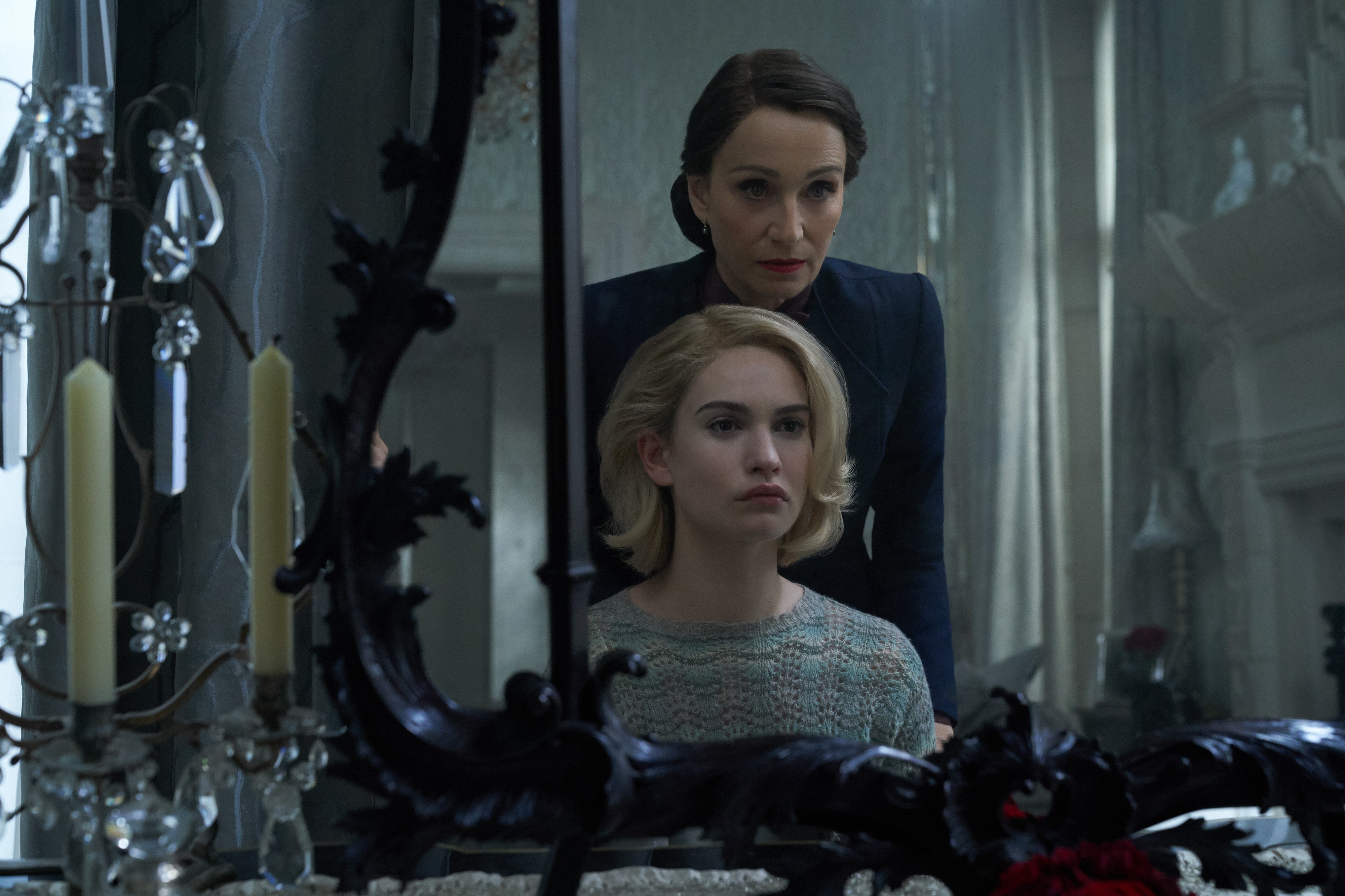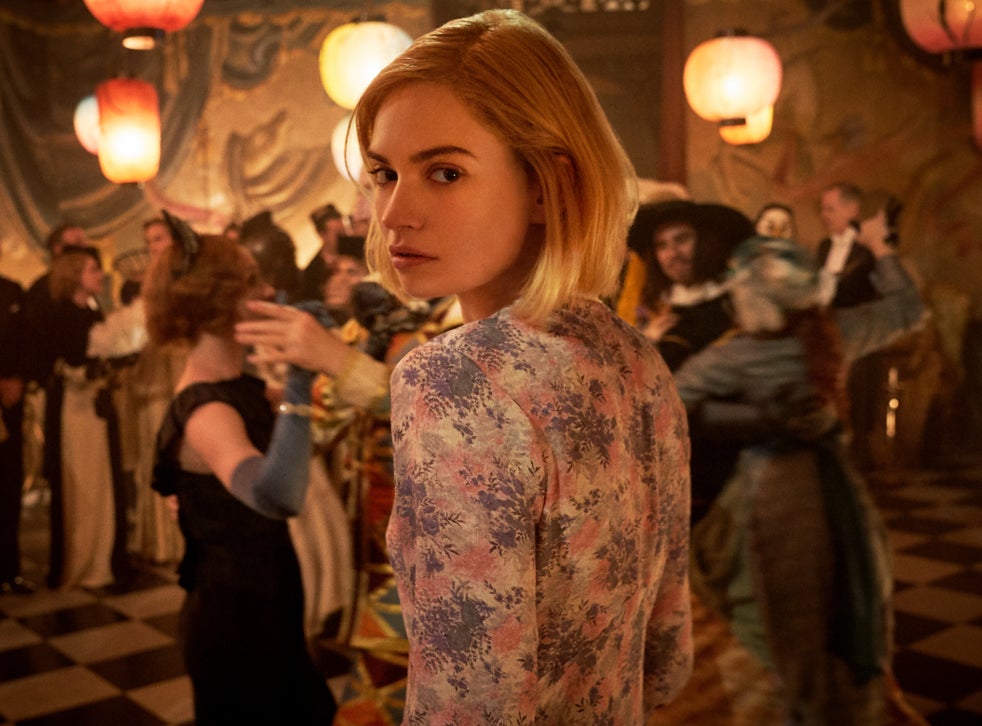
espite being billed as a romance when it was first released, Daphne du Maurier considered her 1938 novel Rebecca to be a “study in jealousy”. The gothic noir was inspired by her husband’s first fiancée, Jan Ricardo, who used to sign her letters with a distinctive R, just as the novel’s titular character.
This was no misinterpretation of the story. This was the age of Gone with The Wind (1939), Casablanca (1942) and Joan Crawford’s ‘women’s pictures’. “In the 1930s and 1940s, there was an explosion of romantic literature such as Mills & Boon and cinemagoing that was filled with love stories,” explains Dr Hannah Charnock, lecturer in British History at the University of Bristol. “These stories were totally parallel to most people’s lives – they were about escapism. Most partners were found via your circle of friends and family and local communities. Marriage was about social and economic standing – not passionate displays of romantic love.”
Rebecca, then, was labelled a romance for marketing reasons – and to great success. Some 82 years after it was first released, du Maurier’s classic has seen three film adaptations – including Alfred Hitchcock’s 1940 version which won him his only best picture Oscar – seven TV adaptations and the book itself has never been out of print, selling 4,000 copies a month in paperback. Rebecca, just like the character herself, has never truly disappeared from our cultural consciousness since its first printing.
Now, it is once again in the spotlight as Ben Wheatley’s remake hits cinema screens on 16 October. Starring Lily James as the new Mrs de Winter caught up in a love affair with brooding master of Manderley, Maxim, played by Armie Hammer, the new adaptation is a heady mix of beautiful people, lust, intrigue and perfectly casts the sublime Kristen Scott Thomas as the menacing Mrs Danvers.

But the big question is: what is the enduring appeal of Rebecca 82 years after it was originally published? Du Maurier’s classic was written against a backdrop of ever-changing rights for women – themes which, in many ways, are just as relevant now as they were then.
The hell of Rebecca and Max’s marriage was published just two years after the UK’s 1937 Matrimonial Causes Act which finally made divorce possible for women. Until then, adultery could only be used as grounds for divorce by men; women had to prove adultery alongside incest, sodomy or cruelty to win their freedom– which was more or less impossible. For the first time in British society, marriage didn’t necessarily mean “until death do us part” and this opened up a lot of possibilities for women and may have caused du Maurier to become introspective on her own marriage.
Marriage was about social and economic standing – not passionate displays of romantic love
Born in 1907, du Maurier came from a well-connected, artistic family. She married Sir Frederick Arthur Montague "Boy" Browning of the British Army at the age of 25 after three months of meeting him. It looked like a match made in heaven and they’d regularly entertain Queen Elizabeth and Prince Philip and holiday at Balmoral but behind the scenes was a tumultuous relationship. Browning was a chronic drinker, involved in simultaneous affairs during the 1950s while an accident in 1963 when he injured two people drink driving led to a scandal at the time.
Seen with this backdrop the romance of Rebecca is now a questionable dynamic: “I first read the book as a nail-biting teenager and also loved Maxim,” explains Donna Coonan, editorial director of Virago which publishes Rebecca in the UK. “A few years later, I reread it and could hardly believe it was the same book. This time I could see that Max is manipulative, condescending (‘I’m asking you to marry me, you little fool’) and replaces his first wife, an independent, capable, sexual woman with a timid girl 20 years his junior, who he praises for her ‘innocence’. I wouldn’t have known of the term gaslighting then, but if I was reading it for the first time now, I think I’d have been more alive to Max’s machinations.”

Meanwhile, from a feminist perspective, it’s clear Rebecca was a model society hostess; Max aside, no one says anything bad about her throughout the novel. From running a huge household to winning the loyalty of her staff, Rebecca now seems less of a monster and more a resourceful woman stuck in a loveless marriage.
Additionally, by belonging to the upper classes, both du Maurier and her husband (who remained married until his death in 1965) were able to act in ways the lower classes could only dream of without being barred polite society (after all King Edward VIII abdicated the throne in 1936 over his love for the twice-divorced Mrs Simpson; all of which was kept from the general public until the last minute). It was this social and economic freedom, that allowed the novelist to pursure physical and emotional affairs with both women and men (although she hated the term “lesbian” and instead referred to her “Venetian tendencies”) and use them – even tangentially – in her writing.
The relationship between Rebecca and Mrs Danvers – as played by Judith Anderson in the 1940 Hitchcock version – is celebrated as an example of Hollywood’s queer subculture; “Danny” carefully preserves Rebecca’s possessions right down to her underwear and eventually burns the house down to avenge the woman she adored.

Of course, while it’s easy for us to see these themes now, they bear very little relation to what the contemporary audience wanted from the story. If romantic love was off the table (especially for working- and middle-class women), sex was simply not mentioned. Catherine Wright explains: “In those days no one talked about sex. You’d hear rumours of someone going off with someone else’s husband, but everything was behind closed doors while my mum and dad would have been appalled if I’d got pregnant and wasn’t married.”
In those days no one talked about sex. Everything was behind closed doors
Male homosexuality had been illegal since 1533 but relationships between women weren’t even openly acknowledged. “The possible dynamic between Mrs Danvers and Rebecca wouldn’t have been seen as a lesbian relationship because it wasn’t talked about then,” explains Dr Charnock “In 1921, the House of Lords discussed making female same sex acts illegal but decided against it as it would have drawn attention to it. They thought more damage would be done by creating legislation, so it was better not to say anything at all.”
Ultimately, whether du Maurier was consciously or unconsciously shining a spotlight on attraction to both women and men, exploring what it meant to be a liberated woman or just quietly resisting accepted norms of polite society, Dr Charnock neatly captures what makes it endure: “Rebecca is about her picking at the edges of what behaviour is acceptable in female sexuality.” Rebecca is a woman who wants freedom: sexually, economically and personally. Eight decades later, du Maurier and her anti-heroine have no intention of going quietly into the night.
Rebecca is in cinemas on 16 Oct







